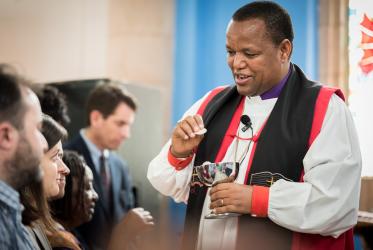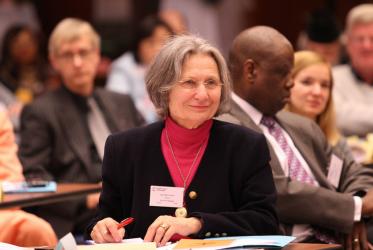The migration of Ruth to Bethlehem can be understood as a kind of pilgrimage because she chose to immigrate as a form of solidarity with her mother-in-law, Naomi. Her journey of migration changes Ruth’s beliefs, values, and path of life. The text speaks about two stories of immigration—the first one is caused by scarcity of basic provisions, and the second one is propelled by solidarity. We can see similarities between pilgrimage and immigration. There are shared elements of journey, importance, unpredictability, encounters, conversion, solidarity, openness, closeness, and divine providence. The story of Ruth and Naomi provides a biblical understanding of pilgrimage of justice and peace in relation to immigration.
24 May 2017
WCC Programmes





